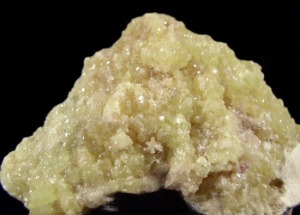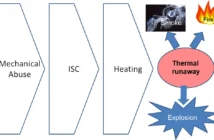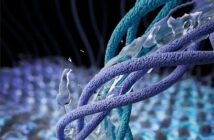GS Yuasa International Ltd. has completed the initial development of a new advanced lithium secondary battery which has a “Sulfur-Porous Carbon Composite” positive electrode with 8 times higher capacity than that of conventional lithium ion battery, positive electrodes and a silicon based negative electrode with high capacity.
This will allow the driving range of electric vehicles to significantly increase. The practical technology development will be preceded by further improvement of durability performance for the silicon based negative electrodes, samples are expected to be available by 2020.
The extremely high energy density is primarily the result of the new sulfur composite positive electrode. Sulfur is one of the most promising materials for the positive electrode in advanced lithium secondary batteries because of its high theoretical capacity of 1675 mAh g-1 in addition to low cost and natural abundance.
However, the practical use of sulfur for the electrode reaction is low because of its insulating nature. As a result, it is difficult to achieve actual capacity as high as the theoretical one. The current standard approach has been to use a high conductive porous carbon matrix to support the sulfur component of the electrode, to improve the utilization.
Although, the capacity of the positive electrode has been shown to remain below 800 mAh g-1 due to the challenge in developing a uniform carbon matrix in which the sulfur can be fully utilised.
GS Yuasa has worked to improve this issue and has successfully synthesized a “Sulfur – Porous Carbon Composite” positive electrode with a capacity of above 1000 mAh g-1 by infusion of sulfur into a controlled nano-sized and uniform pore in the matrix.
Another challenge in the development of sulfur based positive electrodes has been poor life performance due to the dissolution of polysulfides produced during discharge process, which results in a short life for the cell.
GS Yuasa has developed a technology to minimize this dissolution, which has resulted in better life performance than that of the current one. They have drastically suppressed capacity of the positive electrodes with the composite by using the technology.
At UPS Battery Center, our goal isn’t to only sell batteries, we want to inform and teach you about the amazing world of batteries, electricity and energy. Please check back for more interesting, helpful and informative articles about batteries and electricity.
Related Articles:
Scientists Develop New Electrolyte for a Magnesium-Sulfur Battery
Environmentally Friendly Alternatives Exist for Toxic Halogen Containing Li-ion Batteries
Longer Lasting Rechargeable Lithium Batteries with Silicon Electrodes
Thermoelectric Applications may Benefit from New Form of Crystalline
Chemists get Closer to Developing Next-Gen Energy




